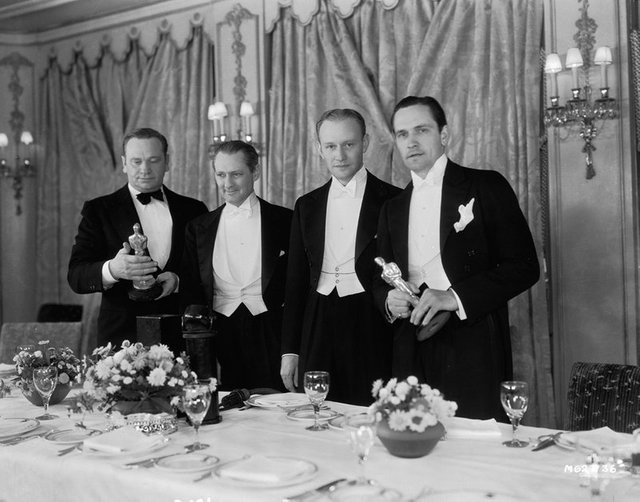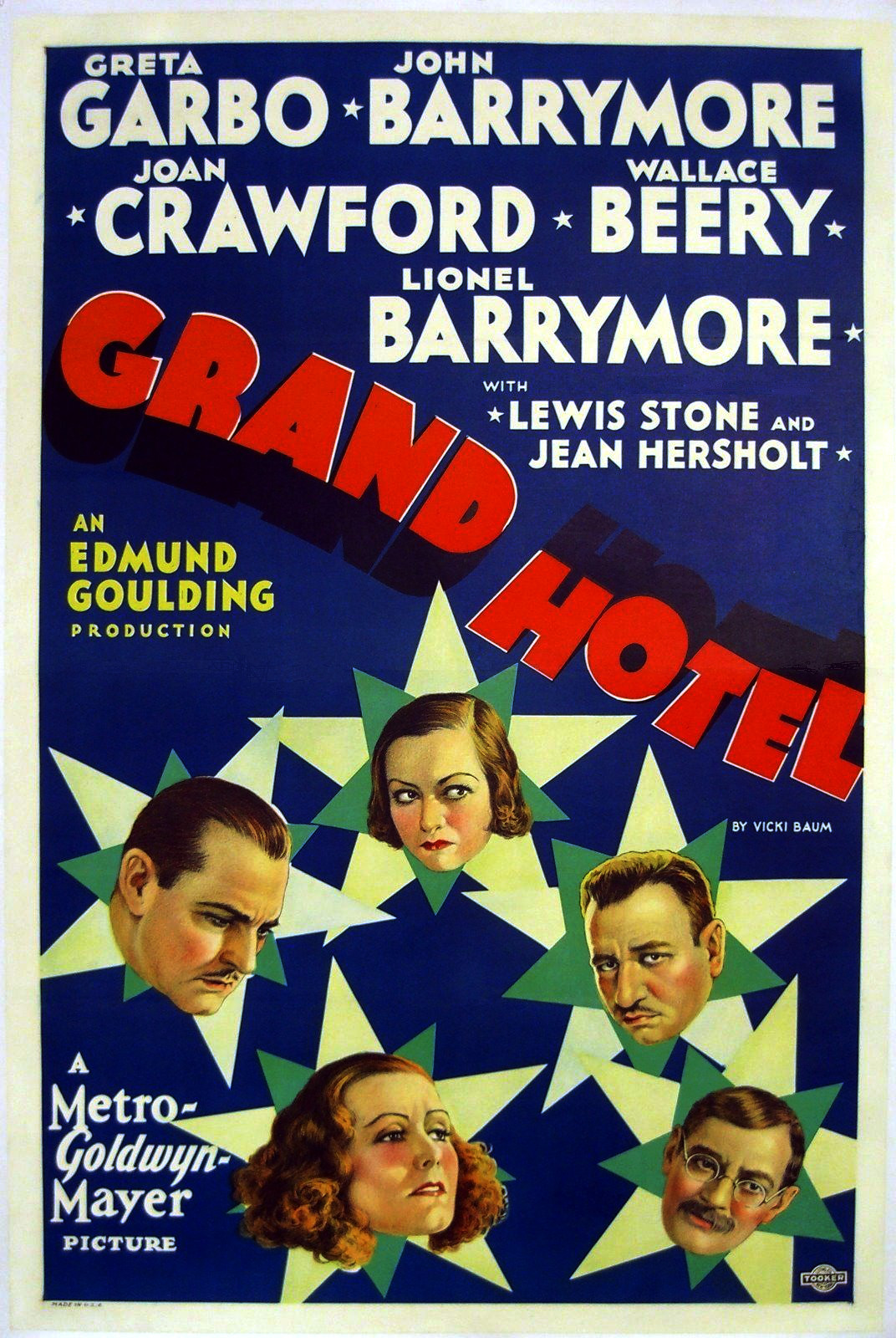History of Oscar: Best movie 1932, original series by @ivancica #5
Hello everybody,

I hope you are well and that my blogs have encouraged you to look at some of the old Oscar films. Today we continue through the history of the Oscars. We continued in 1932 when another Oscars was held. The fifth edition of the award, at which the Los Angeles Academy honored the best film achievements premiered in the period from August 1, 1931 to July 31, 1932.
The American film drama Grand Hotel, featured Greta Garbo, Lionel and John Barrymore and Joan Crawford as the starting roles, remained the only Best Picture Academy Award winner in history, to be nominated in just one category. Truly impressive, a film that was nominated in only one category won an Oscar for this category and became the best and most viewed film of the year. But a little later on that movie.
And a great deal of interest also took place on the fifth Oscars of the award, something that has not happened through history, and that is that Wallace Beery ("The Champ") and Fredric March ("Dr. Jekyll and Mr. Hyde") shared the recognition for Best Actor.

Source: https://www.pinterest.com/pin/488288784585594496/
One of the most remarkable Awards given during that night has been the Special Award or Honorary Award to Walt Disney.
The Honorary Award was created to honor actors, producers, directors and other important personalities for their significant achievements and contributions to the motion picture industry. After Warner Bros and Charlie Chaplin, respectively in 1927 and 1928, Walt Disney received the award "for the creation of Mickey Mouse."
That year Disney won for Short Subject (Cartoon) with "Flowers and Trees" , the very first commercially released film to be produced in the full-color three-strip Technicolor process.
Grand Hotel
Grand Hotel
Dr. Otternschlag, a resident at the Grand Hotel, Berlin's most expensive hotel, observes that life at the hotel is "always the same. People come--people go, nothing ever happens." Guests check in, share parts of their lives with one another and then leave. One such guest is Grusinskaya, a beautiful Russian ballet dancer who knows that her popularity is waning and complains that everything in her life has become "threadbare." Grusinskaya's stay at the hotel becomes greatly affected by her acquaintance with Baron Felix Benvenuto Frihern Von Gaigern, a charming hotel thief who plans to steal her pearls. Another guest, ailing bookkeeper Otto Kringelein, has been told that he has only a short time to live and is intent on spending his last days in the grandest style possible. Kringelein's intentions, however, are thwarted by the presence of his inimical boss, textile magnate General Director Preysing, who is in Berlin to make an important business deal. When the baron meets Flaemmchen, Preysing's stenographer, they flirt and make plans to attend the hotel dance together. The baron then goes to his room, where he waits for Grusinskaya to depart for the theater. The baron enters Grusinskaya's room through her balcony and quickly finds the pearls, but is forced to hide when he hears someone at the door. Grusinskaya, who has returned from the theater after refusing to perform, calls Pimenov, the ballet master, and learns that her presence was missed by no one. Left alone, the depressed Grusinskaya is about to kill herself when the baron emerges and tells her that he is a great admirer of her talent and professes his love for her. After they make plans to leave for Vienna and start their lives over, they spend the night making love. The following day, Preysing negotiates a dishonest business deal and goes to the hotel's Yellow Room for a drink. There, he tries to steal Flaemmchen away from her conversation with the lonely Kringelein, which results in a bitter argument between Kringelein and Preysing. Later, when Flaemmchen realizes that she has been spurned by the baron, she accepts Preysing's offer to travel with him. The baron, meanwhile, tries to quit the hotel robbery racket, but is forced to continue stealing in order to pay his debt. Kringelein offers the baron money, but he refuses it and instead organizes a card game with Kringelein and some other men in the hope that he can win enough money to settle his debt. The baron soon loses all of his money, while the drunken Kringelein wins easily. When Kringelein collapses from over-excitement, the baron steals his wallet, but then returns it when he sees how upset it has made the bookkeeper. Later that night, while Grusinskaya places a call to the baron in his room, Preysing catches him trying to steal his wallet and kills him with a telephone receiver. Horrified at the sight of the murdered baron, Flaemmchen runs to Kringelein for help, and he, despite Preysing's pleadings, calls the police and turns Preysing in. The baron's body is removed the next morning and Preysing is arrested. After Flaemmchen accepts Kringelein's invitation to travel and live with him, they depart for Paris, certain that they will find another Grand Hotel there. Meanwhile, Grusinskaya's maid shields the departing dancer from the news of the baron's death and assures her that he will meet her at the train station. Grusinskaya, ignorant of the truth and certain of her happy future with the baron, is whisked through the lobby of the hotel to her car.

Source: IMBD
A film that is certainly worth looking at especially those who read this literature and love the theater ambience. I looked at the film, and I must admit that I really liked it and left a big impression on me. He really deserved the Oscar for the best.
The nominated also were:
• Arrowsmith
• Bad Girl
• The Champ
• Five Star Final
• One Hour With You
• Shanghai Express
• The Smiling Lieutenant
The Bad Girl movie took two Oscars for the best performance and the best scenario. Considering that it is a performance with two Oscars as well as the film The Champ. I'm sure they are worth every attention. I'll take a close look at them.
So much for today.
Greeting.